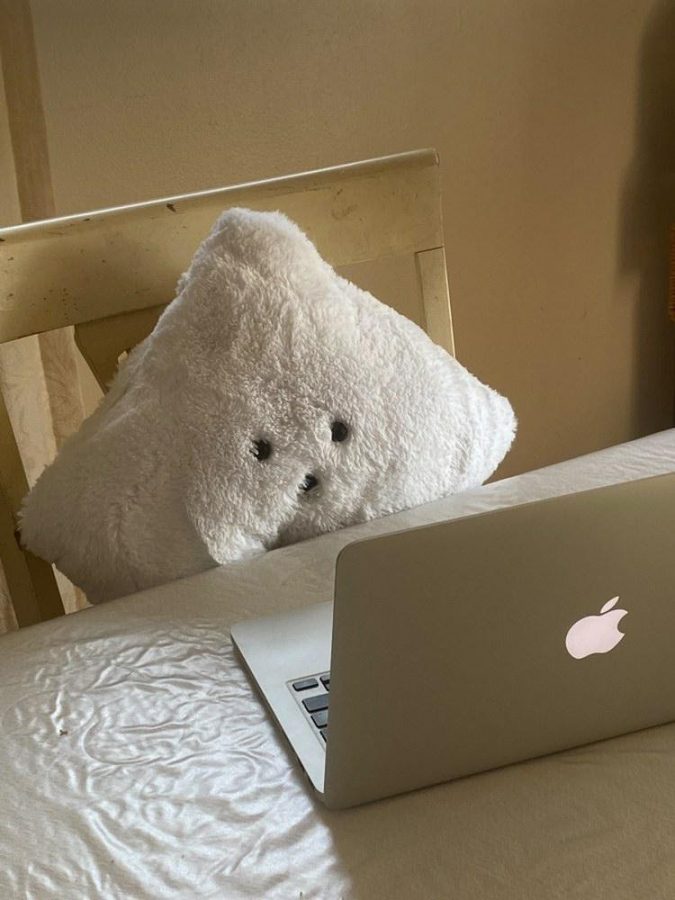Destress from a Distressing Year
Art/Photo by Cassandra Hernandez (12)
To get through a tough day, Cassandra Hernandez (12) spent time sewing a pillow as a gift for her friend.
October 16, 2020
While the choice to close campuses and transition to virtual classes was made to keep students physically safe during this unpredictable pandemic, it seems that COVID-19 has also brought a new set of dangers: increased struggles with mental health.
Cassandra Hernandez (12), the president of West’s mental health club, Mindful, shared her rollercoaster-like experience through these hard times: “At first, I would just play video games/watch TV/be on my phone, and stay up for 24 hours straight, repeatedly.” After a few months of this, Hernandez began adjusting to a new quarantine protocol. Unfortunately, school started not long after. “All my motivation went out the window and I felt tired all the time,” she said.
Going through a nationwide health crisis is stressful enough. Add on a whole new school environment, and students are bound to feel burnt out.
Shreya Reddi (12), a captain of the Academic Decathlon team, is expected to have consistent dedication and good study habits in the club. But additional pressure has taken a toll on her. “Lockdown has made it much more difficult to manage multiple extracurriculars,” Reddi said. “It becomes really easy to forget when deadlines are, when certain assignments are due, or if we have meetings/practices.” This, on top of six hours of classes every day, can leave students drained and exhausted.
There are a plethora of negative things to focus on and it’s easy to become blind to the positives. From parents losing jobs, to not having a good home environment, to constantly worrying about everything in the news, it can become difficult to find hope. Hernandez offered a few suggestions:
- “Know what is and what isn’t in your control, and focus on the things you can control. For those who are anxious or stressed about news and current events, my best advice is to limit your screen time.” While there is value in being informed about what is going on, it’s important to make sure it doesn’t become an obsession.
- Reach out to friends and family. Reddi often video calls her friends to relieve stress, describing how she and her friends will “get on a Zoom call and just talk to each other. Sometimes we’ll play Among Us, a pretty popular game these days, or we’ll watch Netflix together.” Although it doesn’t perfectly replace face-to-face, in-person interaction, shooting someone a text or chatting on the phone can still help to alleviate loneliness and have fun.
- Most importantly, take time to care for yourself. Do the things you enjoy whether it’s sewing, reading, painting, or journaling. When feeling overwhelmed, you can utilize meditation or mindfulness resources such as Headspace, Calm, or 10% Happier. Furthermore, taking care of basic needs, such as sleeping for eight hours, eating balanced meals, and staying hydrated can make a huge difference in your overall mood.
Some of these changes might be hard to make, so set realistic goals. For example, if you are nowhere close to the recommended amount of sleep, try heading to bed 10 minutes earlier than you normally would. Then try 20 minutes. Gradually, you will achieve your goal.
Even if things aren’t going as planned, remember to practice forgiveness and self-compassion because you are doing your best.













